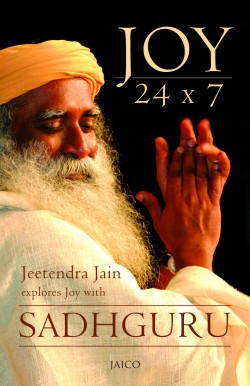
The relationship between food and health is undeniable. Increasingly, unhealthy eating habits are being clearly linked to a tremendous range of medical conditions, including fatigue, brain fog, intestinal problems, skin conditions, diabetes, high blood pressure, and even cancer. On the positive side, healthy eating habits are being shown to increase energy, help regulate body weight, strengthen immune response, improve mood and cognition, and even combat anxiety and depression. But with the tremendous amount of often contradictory research out there these days, where should we begin if we want to use food to promote physical and mental health?
Fortunately, drawing from his deep understanding of the human system, Sadhguru has provided clear, detailed, comprehensive guidance on what, when, and how to eat. These three important and related elements, taken together, can help us maximize our vitality and health.
What To Eat
While there are not rules that exactly determine what each person should eat at every meal, there are certain guidelines, given by Sadhguru, that everyone can use to pick out healthy and energizing foods. Eating the proper foods is an important step in living a healthy and vital life.
One of the primary guidelines given by Sadhguru is to transition towards a vegetarian diet, full of fresh fruits and vegetables. Sadhguru says, “there is no one prescription of what you should eat for the rest of your life. That said, sugars and carbs are definitely a serious issue. But the real long-term challenge is weaning people off meat.”
“In all the carnivorous animals, the length of the alimentary canal is approximately only three times the length of its body. In all the herbivores, the length of the alimentary canal is five to six times the length of the body. In a human being it could be anywhere between twenty-four to twenty-eight feet which is nearly five to six times the length of our body. If you put meat in this kind of alimentary canal, it will travel through this very slowly. Raw meat would take approximately seventy to seventy-two hours to pass through the system. Cooked meat will take fifty to fifty-two hours. Cooked vegetable meals will take anywhere between twenty-four to thirty hours. Raw vegetables will take twelve to fifteen hours. Fruit will take one-and-a-half to three hours.”
“We started recognizing which food passes through the body quickly and with least amount of residue. In Yoga, one important thing that we look at is if we eat anything, the stomach must be empty within two-and-a-half hours. The stomach is empty, but we are energetic, so we do not eat. Generally, in the Isha Yoga Center, everyone has only two meals – at ten in the morning, and seven in the evening. Most of the days, I eat only one meal. If I am traveling, I may eat something else a little bit, but otherwise generally if I am home, I eat only one meal, generally around 4:30 to 5:00 in the evening. It will keep me going for the entire twenty-four hours. It is not like a rule. If there is a lot of physical activity on a certain day, then I may eat a small breakfast or a fruit or something like that. Food is not to be made into a philosophy or a kind of a religious process. Food is the requirement of the body.”
“If you watch the body, you will naturally notice that the body is most comfortable and at ease with plant-based food. It is flexible, at ease, and has less to process on a daily basis. Those who observed the nature of their own bodies naturally became vegetarian. When survival was the question, hunting and eating whatever you kill was a natural process. But once societies settled down, they could grow what they want. As they observed themselves more and life became not about survival but about enhancing one’s life to higher levels of perception and experience, then turning vegetarian was a natural process. It is bound to happen everywhere.”
For studies corroborating the benefits of a vegetarian diet, please see this article from the Cambridge Nutrition Society, and this one from the National Library of Medicine.
When To Eat
Just like the question of what to eat, the question of when to eat is important for health and vitality. In the modern world, not so much attention is paid to when to eat, and often people will eat whenever they can. Some people eat while driving to work or standing around on a break. If attention is not paid to when we eat, health and vitality may not come, even one chooses healthy foods.
One basic aspect of when to eat is that one should not eat too close to when one goes to sleep. Sadhguru says, “there must be three hours after the evening meal, before you go to bed. If this includes at least 20 to 30 minutes of light physical activity – such as simple walking – your system will largely be healthy. If you go to bed with food still inside the stomach, it generates a certain level of inertia in the system. Physiologically, this inertia is like an acceleration towards death.”
“Another dimension is that if you go to bed with a full stomach, it puts pressure on other organs in the abdomen. This will also lead to various kinds of health issues. For that reason too, it is very important that before you go to bed, the food you have eaten has moved out of the stomach. As you sleep in different postures, the stomach should not put pressure on other organs at any point.”
For studies corroborating the benefits of fasting after dinner, please see this article from the National Library of Medicine, or this one, or this one.
How To Eat
The final important point when it comes to food is how to eat. If one picks out the right foods and is attentive to eating at the right times, yet quickly eats the meal without paying attention to the food, then much of the benefit is lost. How to eat is just as important as what to eat or when to eat.
One important guideline for how to eat is related to chewing. Sadhguru says, “in Yoga we say, ‘If you take a morsel of food, you must chew it twenty-four times.’ There is a lot of science behind this, but essentially, your food gets pre-digested in your mouth and will not cause dullness in your system. If you chew twenty-four times, the information of that food gets established in your system and every cell in your body will be able to start judging as to what is right and not right for you – not in terms of the tongue but about what is appropriate for the whole system. If you do this for some time, every cell in the body will have the education as to what it likes and does not like.”
Another important guideline is related to eating with a sense of gratitude. Sadhguru says, “one must eat, but we must eat relishing the nourishment of what the food offers and with gratitude of what it means to our life. This is not to take away the pleasure of eating. The true joy of eating is that you are conscious of some other life willing to merge with your own life and become you. This is the greatest pleasure that a human being knows, that in some way something that is not you is willing to become a part of you. This is what you call love. This is what you call devotion. This is the ultimate goal of the spiritual process.”
“Eating food is a demonstration of the oneness of the existence. This beautiful process is happening at your mealtime every day. Something that was a plant, a seed, an animal, a fish or a bird, just merging and becoming a human being is a clear demonstration of the oneness of the existence and of the hand of the Creator in everything that is.”
For studies corroborating the benefits of thoroughly chewing food and of gratitude, please see this article from the American Journal of Clinical Nutrition, or this one from the journal Appetite, or this one from UC Berkeley.
Conclusion
With this brief introduction to the guidelines for food given by Sadhguru, it can be seen how important food is in our lives, and how important it is to have the proper relationship to food. If we are able to gain the proper awareness around food, then we can use it as a tool to find health, vitality, and true well-being.
For a more comprehensive guide to Sadhguru’s food guidelines, please click here:
https://isha.sadhguru.org/us/en/wisdom/article/eating-healthy-tips-how-when-what-to-eat
You’ll also find more of Sadhguru’s guidance on eating well at these links:
https://isha.sadhguru.org/us/en/wisdom/article/eating-healthy-tips-how-when-what-to-eat
https://isha.sadhguru.org/in/en/wisdom/article/plant-based-diet-benefits#point2
https://isha.sadhguru.org/in/en/wisdom/article/fruit-diet-good-for-you-planet
Attend a free webinar “Meditation for Beginners” to explore a simple yet powerful 12-18 minutes meditation that can bring clarity, health and joy. Visit www.innerengineering.com/freeyoga
-
Aliki August 14, 2023 at 6:13 pm🙏🙏🙏




